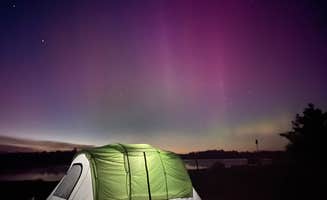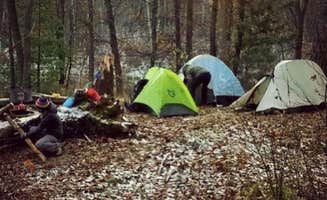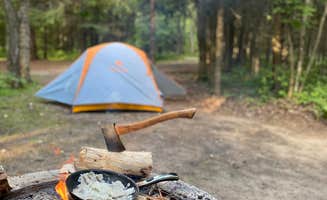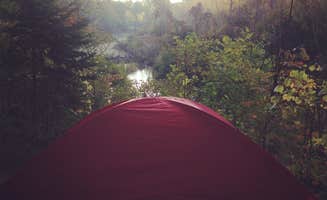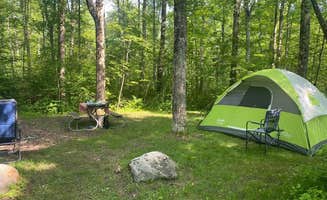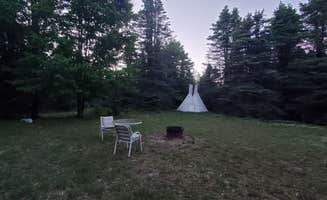The area around Lewiston, Michigan offers dispersed camping opportunities across several state forests and public lands. Temperatures range from summer highs averaging 80°F to winter lows frequently below 15°F, with fall nights often dropping into the 40s. The region sits at approximately 1,100 feet elevation with predominantly sandy soil and mixed northern hardwood forests that create varying terrain for tent camping near Lewiston.
What to do
Fishing opportunities: Wakeley Lake offers catch-and-release fishing with artificial lures only. A camper at Wakeley Lake Campground notes they "hauled our canoe loaded with our tent and amenities on a dolly the half mile or so back to the camp sites" to access "some of the best catch and release artificial lure only fishing."
Wildlife viewing: The forests around Lewiston provide habitats for diverse wildlife. At Wakeley Lake, one visitor reported "loved watching the loons on the lake," while other campgrounds offer opportunities to see woodland creatures in their natural habitat.
Paddling experiences: The AuSable River system provides multiple water routes for canoes and kayaks. A visitor to Keystone Landing State Forest Campground described it as "perfect for trout fishing as there are three access spots to the river," making it ideal for combining paddling with fishing.
What campers like
Secluded waterfront sites: Many campgrounds offer waterside camping with minimal crowds. A visitor at Rainbow Bend State Forest Campground shared, "If you like to rough it, but be able to drive to your campground, this is your place. Get back to nature here with no running water or electric."
River access: The region features multiple camping options along waterways. According to a camper at Rainbow Bend, "There is group camping right on the river as well which makes it a great place to stop and stay a night as you go down the river." They also noted it has "a well with a pump that has fresh cold water."
Rustic experience: Many tent camping locations near Lewiston maintain a basic camping atmosphere. A visitor at Keystone Landing described spending "a week here with only two other campers. Rustic. Maintained Gravel Road. Variety of trees. Walking path to AuSable River."
What you should know
Water availability varies: Many dispersed sites have limited or no water access. At White Pine Canoe Camp, a camper reported "the water pump was out of commission and there was very limited access to dry wood or dead trees," so they had to bring "enough water and pre-made foods."
Site preparations: Most locations offer minimal improvements. Rainbow Bend features "clean, flat lots" according to one visitor, while others might require more site preparation before setting up tents.
Seasonal considerations: Spring visits may require additional preparations. A Keystone Landing visitor warned to "watch out for ticks in the spring" when camping in the area, particularly for those exploring trails or wooded areas.
Tips for camping with families
Accessible rustic options: Rainbow Bend offers an approachable introduction to rustic camping. One visitor described it as "a great, quiet, cozy place to take kids or anyone for that matter," noting it has "right on the river and clean, flat lots."
Waste management: Most established campgrounds provide basic sanitation. At Parmalee Bridge State Forest Campground, a visitor noted the site was "clean and well maintained" with "3 vault toilets" and "a dumpster."
Water supply: Bringing additional water is recommended even at sites with pumps. A Parmalee Bridge camper mentioned they had a "functioning potable water pump," but at other locations, pumps may be unreliable or seasonal.
Tips from RVers
Limited amenities for larger vehicles: Most forest campgrounds have minimal accommodations for RVs. At Wakeley Lake Area, sites are primarily "walk in sites" requiring visitors to park and carry equipment to their campsite.
Supply planning: Campers should pack accordingly for limited services. A visitor at Rainbow Bend noted that they "have almost always had the place to ourselves with only a random other camper here and there," indicating the need to be self-sufficient with supplies.
Seasonal road conditions: Access roads can be challenging in wet conditions. Many forest campgrounds have gravel roads that may become difficult to navigate after heavy rain, particularly for larger vehicles or those towing trailers.


